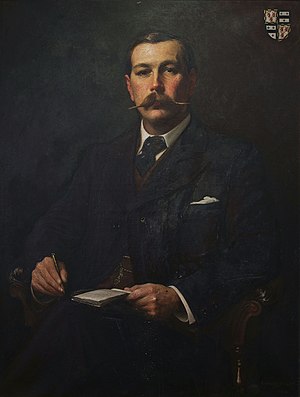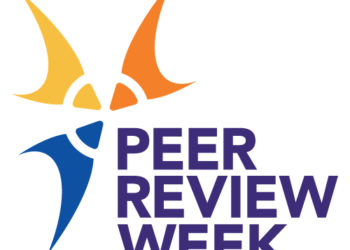
“Silver Blaze” is one of the most memorable original Sherlock Holmes stories. It involves the theft of a famous race horse just before a crucial race. As Holmes reveals what he’s deduced, there is a famous scene, which goes as follows:
Detective Gregory: “Is there any other point to which you would wish to draw my attention?”
Holmes: “To the curious incident of the dog in the night-time.”
Gregory: “The dog did nothing in the night-time.”
Holmes: “That was the curious incident.”
An equally curious incident occurred in June 2013 regarding the PubMed Central National Advisory Committee (PMC NAC). It is the curious incident of the oversight body that apparently did not discuss major public perception, management, functional, and conflict of interest problems surrounding the organization it guides and advises.
According to minutes from the June 27, 2013, meeting of the PMC NAC, which only recently became available, there was no discussion of materials ascertained through a Freedom of Information Act (FOIA) request, information which showed that the PMC NAC itself was kept in the dark about activities at PMC, and was in fact purposefully misinformed by PMC management and guests about how eLife and PMC were collaborating at the equivalent 2012 meeting.
The lack of discussion or apparent concern is surprising, as the PMC NAC has a number of high-powered individuals on it, most of whom certainly know about the controversies surrounding PMC over the past year.
The minutes also provide no indication that these potentially important conversations occurred in a venue outside of the minutes, such as an executive session. In fact, the meeting adjourned 30 minutes earlier than planned. As someone who has read more than his share of PMC NAC minutes, the minutes from the most recent meeting seem more non-descript than usual.
To be clear, the PMC NAC is charged with oversight:
[The PMC NAC] is responsible for monitoring the evolution of PubMed Central and ensuring that it remains responsive to the needs of researchers, publishers, librarians and the general public.
Yet, despite a major controversy surrounding the focus of its oversight and monitoring function, which also implicated how PMC NAC members are appointed, how conflicts of interest are documented and managed, and how the Executive Secretary behaved both in relation to the NAC and in response to public questioning, no discussion was recorded at its most recent meeting.
It is indeed most curious.
Discussion
10 Thoughts on "The Silent Dog — Why Didn't the PubMed Central National Advisory Committee Even Bark?"
You know Kent, perhaps nobody other than you cares about this.
You certainly might hope so, for reasons I won’t pretend to understand. However, if you’re willing to face reality, these posts have not only been among the most widely read but they have caused change both within PMC and among those dealing with it.
What I can’t fathom is why someone like you wouldn’t care. PMC was unfair to a number of OA publishers for the sake of a glam OA publisher, eLife. Its management leadership misled a fine cadre of scientists and academics on its own oversight committee. Apparently, favoritism and conflicts of interest go farther back than eLife, to the early 2000s with BioMed Central and PLOS. So, for a decade or more, a major governmental player in scientific and scholarly publishing has been secretly providing advantages to some groups, while holding others back, all without telling anyone about it, including its own oversight body. And when the scandal breaks, yielding 1,000+ pages of internal emails and documents that reveal a scope far wider than imagined, its oversight body is oddly silent.
Gee, I can’t see why anyone would care about a story like that.
I suppose it speaks to the question of whether government has a responsibility to its constituents and a willingness to be held accountable for its actions. Should it matter if the questions are being raised by hundreds or by one lone voice?
When there are very public accusations of unethical behavior, most responsible organizations will, at least internally, address those accusations–even if only to determine whether they have any merit and to dismiss them. A refusal to even consider voices that disagree with one’s standard operating procedures is worrisome when it comes from a public institution. It reinforces the impression (right or wrong) of cronyism and coverup.
The goal of the NLM and PMC is to make biomedical information more easily accessible. They accept any reasonably decent journal willing to make their content freely available and can meet their technical requirements. They have rules so the process can work and yes they bend them sometimes.
They bent the rules for eLife because it clearly met the spirit of the requirements. That was probably not right and they should have been made to wait a few months and get the web site running, but you made your point in the first post. It didn’t need 47 other posts and thousands of pages of FOIAs.
They bend the rules for others as well when it makes sense. That’s including the journal I started when the two of us running the journal didn’t know anyone in the NLM. They were responsive and helpful all along the way. The journal got into Medline and PMC through the LRTSC but we were not professional publishers and we screwed up the XML so badly on the first test the journal should have been thrown out by their rules concerning technical requirements. They waived the rule and worked with us to get the XML right because it was a good journal and belonged in PMC not because we had friends in the NLM. It’s not only their friends that get breaks.
Helping with XML conversions and tolerating a learning curve is one thing. Breaking (not bending) the rules for eLife, seeking to cover it up, and then claiming they felt no obligation to explain themselves was all beyond the pale. Actively hiding what they were doing from their own oversight body was also beyond the pale. Coordinating coverup answers to other publishers at the same time? Beyond the pale. Reviewing eLife editorial material and excising paragraphs that would have shown complicity? Beyond the pale.
The FOIA requests revealed a lot we didn’t know. I think they were well worth the time and trouble.
Apparently, you’re something of a fan of unaccountable governmental agencies. I am not.
Kent, you’re totally correct this stinks.
But this needs a Milly Dowler moment. To explain: in the UK the hacking of celeb’s and royal’s phones was obviously beyond the pale. But they were rich, privileged and, you know, who gave a toss if it was wrong.
Then it was revealed that the press had hacked the voice mail of missing teenager Milly Dowler. This led her parents to believe she had still been alive (when she had been abducted and murdered) and had hampered police investigations. All hell broke loose and it’s a major court case in the UK right now.
Without that totemic grotesqueness that was perpetrated on ‘one of us’ then the whole ‘hackgate’ thing was nothing more than a freakshow.
But in the UK the Guardian kept plugging away at the issue. You should do the same here.
Yep, me and about 12 researcher and librarians from all across the biomedical community that are on the advisory committee.
PMC Launched February 2000.
The meeting minutes over 13 years later suggest they are just getting around to an objective application procedure:
The procedure has been under consideration for some time, he noted, and is essentially a version of the NLM’s process for selecting journals for Medline (i.e., the Literature Selection Technical Review Committee (LSTRC)).
Considering LSTRC has been using one for over a decade or more, not sure why PMC waited so long to put objective selection criteria in place. I can see the advantage of not having any.



